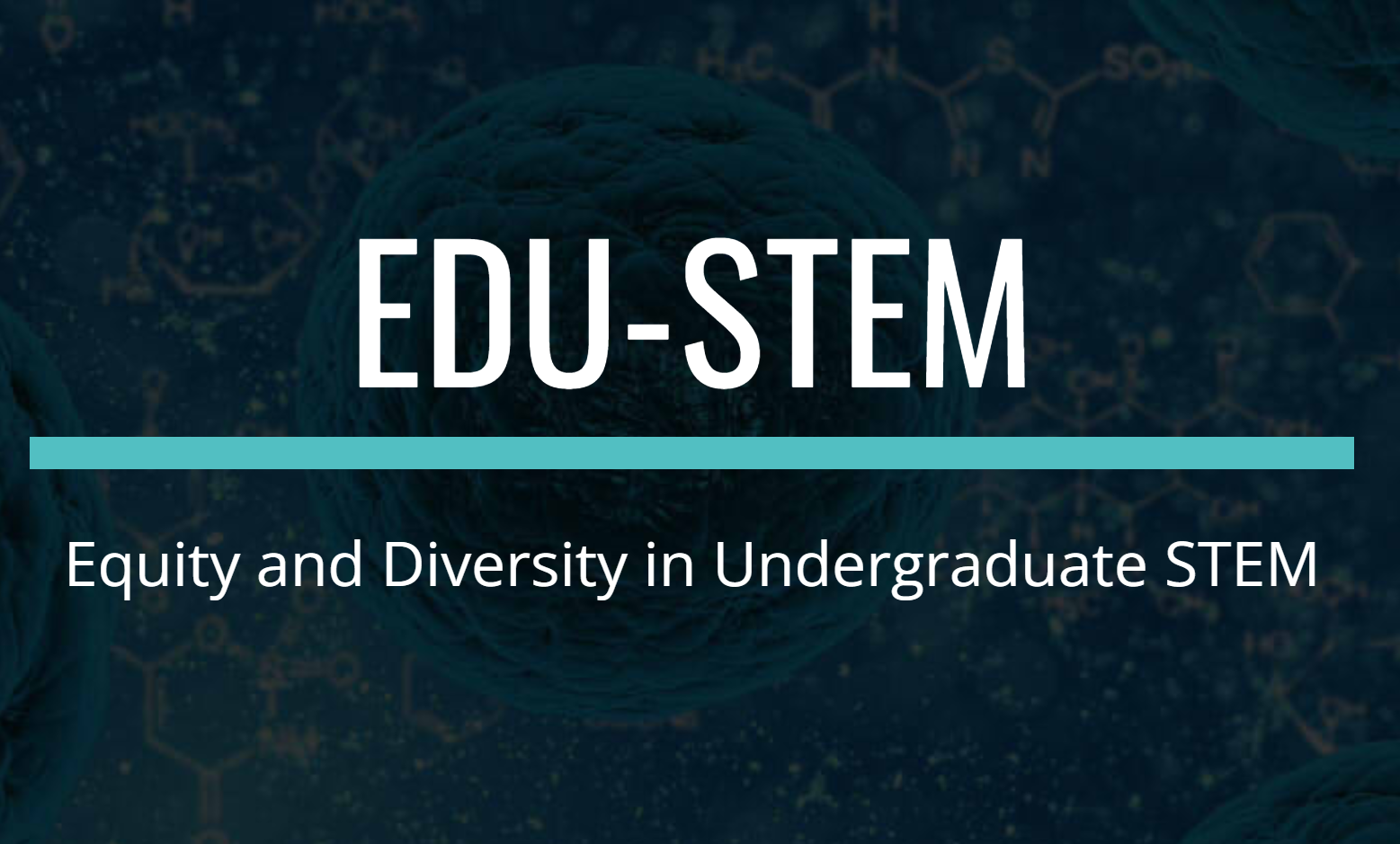EDU-STEM - Equity and Diversity in Undergraduate STEM (RCN-UBE Introduction)
Author(s): Sehoya Cotner1, Cissy Ballen2, Rachael Robnett3, Jordan Harshman2, Sheritta Fagbodun4
1. University of Minnesota 2. Auburn University 3. University of Nevada, Las Vegas 4. Tuskegee University
376 total view(s), 100 download(s)
Description
The EDU-STEM network coordinates teaching and research through evidence-based classroom experiences across the biology curriculum. The four objectives are: Reveal differences, if they exist, in the cultural climate for women and minorities in STEM disciplines (initially focusing on biology) as a function of geography, institution type, and cultural profile of the participating departments; Increase the number of faculty in the United States that are familiar with barriers to inclusion in STEM, and can apply evidence-based techniques for countering known barriers; Develop a community of faculty that can serve as leaders—at their home institutions and nationally—in inclusive teaching and assessment; Identify cultural factors associated with a shift towards evidence-based teaching, especially pertaining to inclusive teaching. These activities will be integrated throughout thousands of students’ first and second years of higher education, and all of them involve evidence- based techniques and experiences.
Ways to learn more:
- Check out the EDU-STEM newsletters archive.
- Odom S, Boso H, Bowling S, Brownell S, Cotner S, Creech C, Drake AG, Eddy S, Fagbodun S, Hebert S, James AC, Just J, St Juliana JR, Shuster M, Thompson SK, Whittington R, Wills BD, Wilson AE, Zamudio KR, Zhong M, Ballen CJ. Meta-analysis of Gender Performance Gaps in Undergraduate Natural Science Courses. CBE Life Sci Educ. 2021 Sep;20(3):ar40. doi: 10.1187/cbe.20-11-0260. PMID: 34283633; PMCID: PMC8715812.;
-
Mazur C, Creech C, Just J, Rolle C, Cotner S, Hewlett J. Teaching during COVID-19 Times: A Community College Perspective. J Microbiol Biol Educ. 2021 Mar 31;22(1):22.1.76. doi: 10.1128/jmbe.v22i1.2459. PMID: 33953810; PMCID: PMC8060133.
-
Thompson SK, Hebert S, Berk S, Brunelli R, Creech C, Drake AG, Fagbodun S, Garcia-Ojeda ME, Hall C, Harshman J, Lamb T, Robnett R, Shuster M, Cotner S, Ballen CJ. A Call for Data-Driven Networks to Address Equity in the Context of Undergraduate Biology. CBE Life Sci Educ. 2020 Dec;19(4):mr2. doi: 10.1187/cbe.20-05-0085. PMID: 33001771; PMCID: PMC8693933.
-
Creech C, Just J, Hammarlund S, Rolle CE, Gonsar NY, Olson A, Campbell N, Mennes K, Adoradio C, Soneral P, Ewell S, Mazur C, Lane AK, Hewlett J, Cotner S. Evaluating the Representation of Community Colleges in Biology Education Research Publications following a Call to Action. CBE Life Sci Educ. 2022 Dec;21(4):ar67. doi: 10.1187/cbe.21-09-0249. PMID: 36112616; PMCID: PMC9727599.
-
Robnett, R. D., Ballen, C. J., Fagbodun, S., Lane, K., McCoy, S. J., Robinson, L., ... & Cotner, S. (2022). Are synchronous chats a silver lining of emergency remote instruction? Text-based chatting is disproportionately favored by women in a non-majors introductory biology course. Plos one, 17(10), e0273301.
-
Ewell, S.N., Cotner, S., Drake, A.G., Fagbodun, S., Google, A., Robinson, L., Soneral, P. and Ballen, C.J., 2022. Eight Recommendations to Promote Effective Study Habits for Biology Students Enrolled in Online Courses. Journal of Microbiology & Biology Education, 23(1), pp.e 00260-21.
-
Lamb, T., Driessen, E.P., Beatty, A.E., Youngblood, R., Esco, A., Cotner, S., Creech, C., Drake, A. G., Fagbodun, S., Hobbs, K., Lane, A. K., Larson, E., McCoy, S. J., Thompson, S., & Ballen, C. J. Equitable instructor assessment changes amid COVID-19 pandemic. Journal of College Science Teaching (in press).
Ways to get involved:
-
EDU-STEM supports travel, professional development, and opportunities for collaborative grant and manuscript development! We’ve had great success on these fronts and look forward to continuing network activities with increased collaborations.
-
EDU-STEM participants will connect through parallel data collection and analyses, coordinated experiments, comparative study, workshops and annual meetings.
-
If you have any questions, reach out to us!
If you are interested and want to learn more, contact EDU-STEM. Individual EDU-STEM partners can best be reached through their institutions. A list of our partners can be found here.
Cite this work
Researchers should cite this work as follows:
- Cotner, S., Ballen, C., Robnett, R., Harshman, J., Fagbodun, S. (2023). EDU-STEM - Equity and Diversity in Undergraduate STEM (RCN-UBE Introduction). RCN-UBE Community, QUBES Educational Resources. doi:10.25334/5SEC-YJ18


 RCN-UBE #1919462
RCN-UBE #1919462